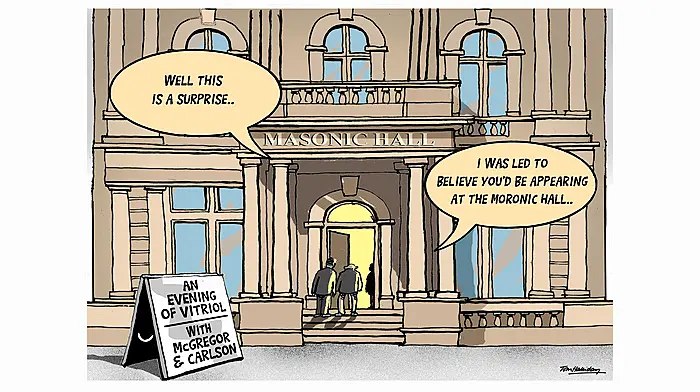Most people would agree that Ireland should have a single-tier, universal health service, paid for out of general taxation and with priority for access based on medical need.
The election of Leo Varadkar as leader of Fine Gael and then as Taoiseach, as well as the British general election and a number of tragedies in the UK, diverted attention away for the recent publication of a report by the Dáil Committee on the Future of Healthcare, which has received a guarded welcome. This is because, while most people would agree with its central recommendation that Ireland should have a single-tier, universal health service – paid for out of general taxation and with priority for access based on medical need – the cost and effort of dismantling the existing system will be immense and getting the necessary co-operation may not be a given.
People who have been affected by lengthy waits for patients on trolleys at hospital emergency departments, or who have been waiting months or years for medical assessment or treatment, would certainly welcome any change that would improve the public health service, which has not had the capacity for many years to cope with the demand for it. This was reflected by the cross-party Dáil Committee on the Future of Healthcare, which saw politicians from all sides getting together in an effort to try to tackle the service’s problems once and for all, as it is something that has plagued successive governments for decades.
The ‘new politics’ approach reached a consensus that Ireland needs a health system like Britain’s NHS, but achieving this will be easier said than done when one looks at the current make-up of our health service. As well as the public hospitals it operates, the HSE also funds voluntary hospitals, public voluntary hospitals and various other providers of services on its behalf, and then there is an increasing number of lucrative private hospitals.
The current set-up was aptly described by Healthcare Committee independent member Joan Collins, TD, as an ‘expensive and not fit-for-purpose jumble of public and private, State bodies and charities, religious institutions and NGOs, inherited from the Victorians.’ That makes for a lot of vested interests, who will not want to lose out under any new regime and whose co-operation with any dismantling and restructuring process will inevitably come at a price.
While it is a form of subsidisation for the cash-strapped HSE, having private healthcare within public hospitals tends to muddy the waters. Allegations that HSE staff were trying to pressurise patients coming through Emergency Departments to use their private health insurance, rather than avail of the public service they are entitled to, are worrying and strengthen the argument for public and private hospitals to be separated from one another.
The time has come to make public hospitals just that and to employ medical staff that will work only for them and not also be seeing private patients, who inevitably get the best attention because the ability of their insurers to pay for their treatment means that they can currently get hospital beds in public hospitals quite readily, while people on the public patient waiting lists with similar ailments have to wait long periods to get treated and sometimes, by the time they eventually do, their condition has worsened considerably. Also, it seems, health insurers pay very dearly for private healthcare and this keeps driving up the cost of insurance.
Because of the uncertainty about the time it can take to access the public health service, a lot of older people in particular are scared to give up paying for private health insurance and this is eating considerably into their pensions, reducing their living standards. Healthcare is not something that should be stressing out people in their twilight years, especially now that they are living a lot longer.
After due discussion in the Oireachtas, it will be the responsibility of Minister Simon Harris – who was left holding the poisoned chalice of the Health portfolio after backing the wrong horse in the Fine Gael leadership contest – to implement the recommendations from it that are accepted. Where to start will be the biggest problem, preferably with a plan that has measurable targets.
It cannot be about throwing money that’s not there at the problem, but getting value for money. As one health commentator remarked, if it was all about money, the United States would have the best health service in the world and that is obviously not the case in spite of President Barack Obama’s best efforts to rectify its problems during his two terms in office.








